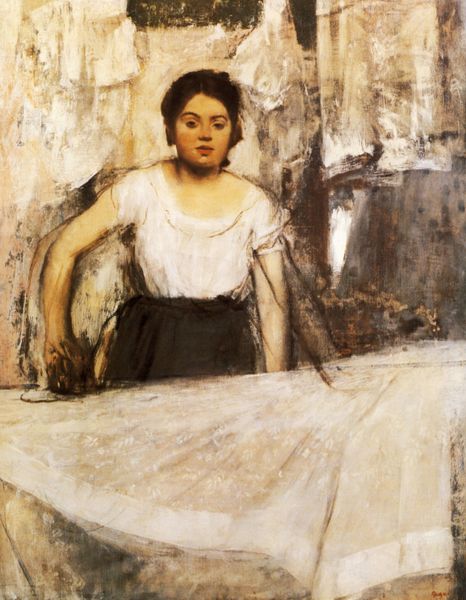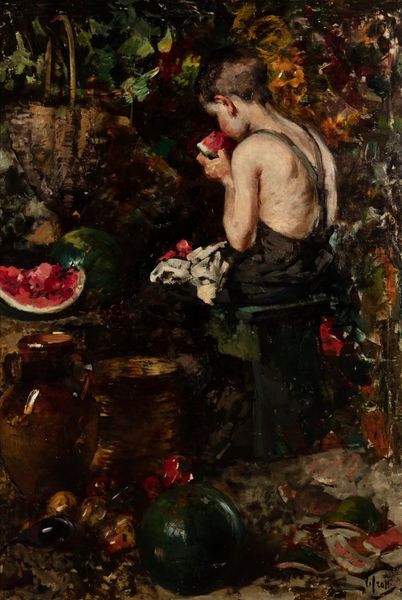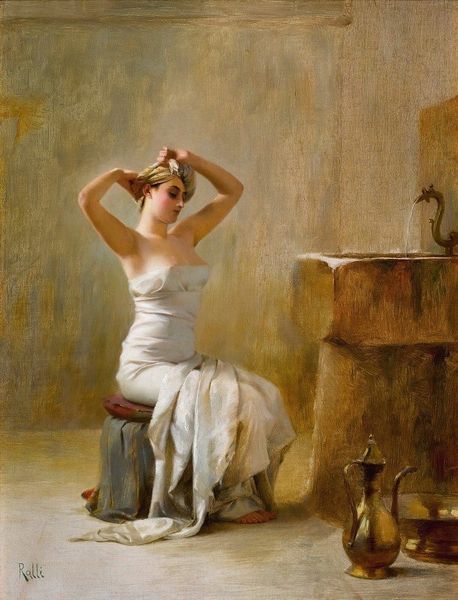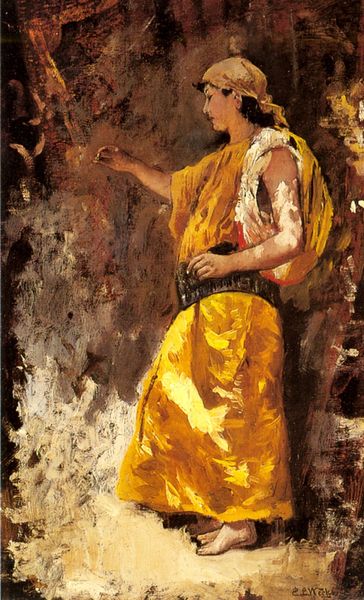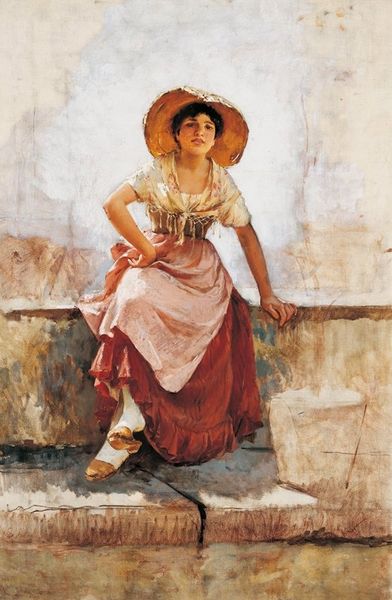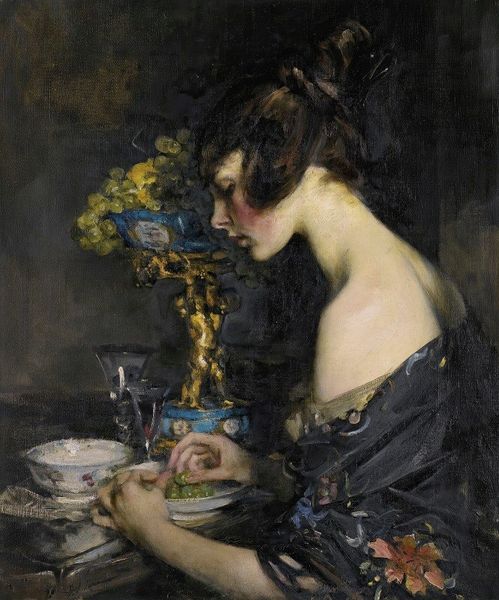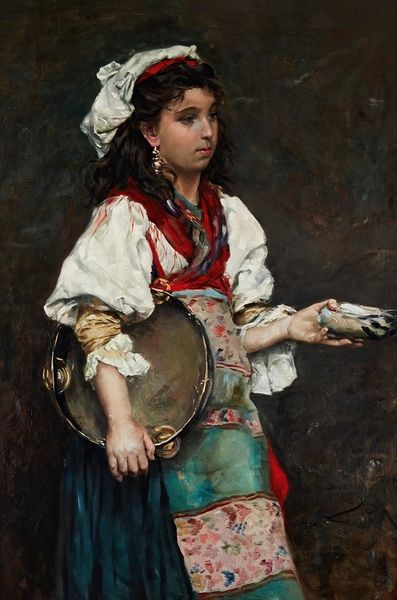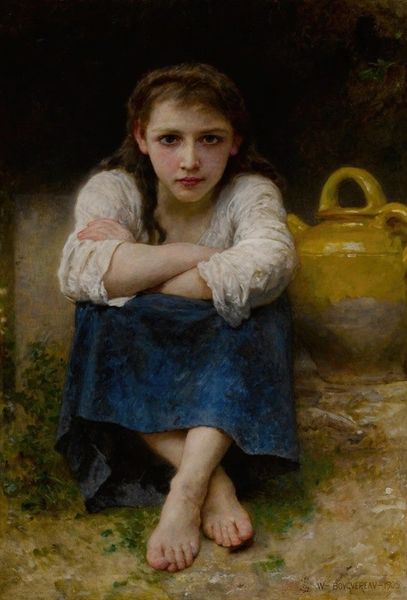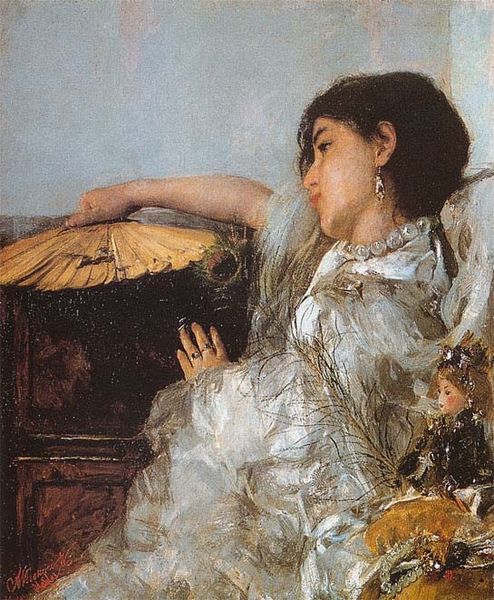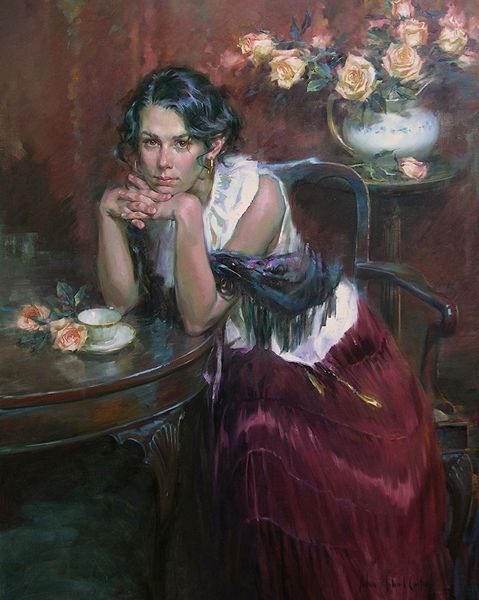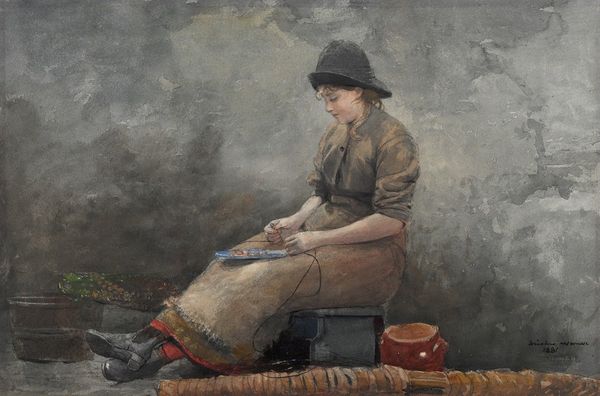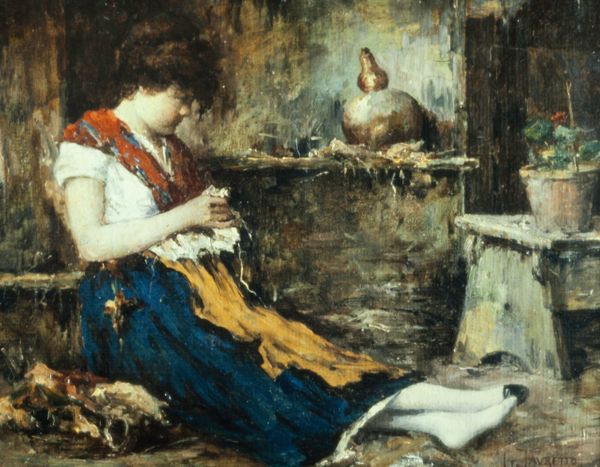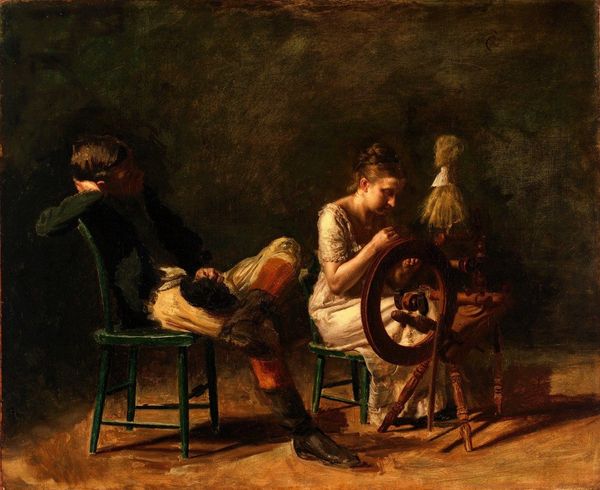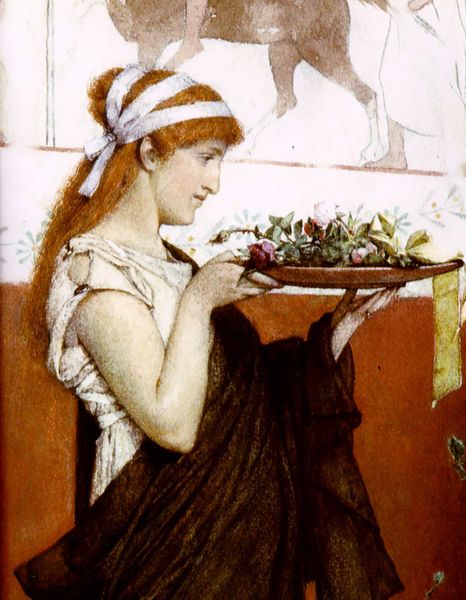
painting, oil-paint, impasto
#
portrait
#
painting
#
oil-paint
#
painted
#
oil painting
#
impasto
#
genre-painting
#
realism
Copyright: Public domain
Curator: This is Vincenzo Irolli’s “Donna Di Cucina,” painted in 1910. It’s an oil painting, quite exemplary of the Realism movement. Editor: The immediate feeling is… weariness. The heavy impasto evokes a tactile sense of the physical demands implied, with an undercurrent of emotional fatigue etched onto the woman's face. Curator: Absolutely. Look how the arrangement of the kitchenware directs our eye. The circularity—pots, pans, her pose mirroring them—creates a compositional loop. This closed form enhances the feeling of confinement. I see it as a commentary on the domestic role relegated to women at the time. The glistening metal a grim reflection. Editor: And yet, while seemingly natural, these spaces were profoundly shaped by bourgeois expectations of women’s labor, rarely granted visibility or artistic legitimacy. Curator: I’m drawn to the color palette—muted earth tones contrasted by those shimmering metallic surfaces. The limited spectrum almost creates a sense of tonal unease, as if something is off-key in the otherwise naturalistic scene. The texture is vital; thick paint evokes the grittiness of the kitchen environment, mirroring her emotional state. Editor: Beyond its textural and structural strengths, think of the broader implications. Irolli's focus challenges conventional beauty standards, portraying dignity in the everyday. He brings what was deemed mundane into the sphere of high art, questioning who gets represented and how. Was it well-received, critically? Curator: There was an understanding that the art world needed a shake up in subject, a move from painting purely grand events and portraiture to genre works featuring the regular members of society and a wider diversity of themes and content. Editor: Food for thought. The weight of unspoken narratives. Curator: A stark mirror reflecting not just form and structure but also the social constructs embedded within daily routines.
Comments
No comments
Be the first to comment and join the conversation on the ultimate creative platform.
